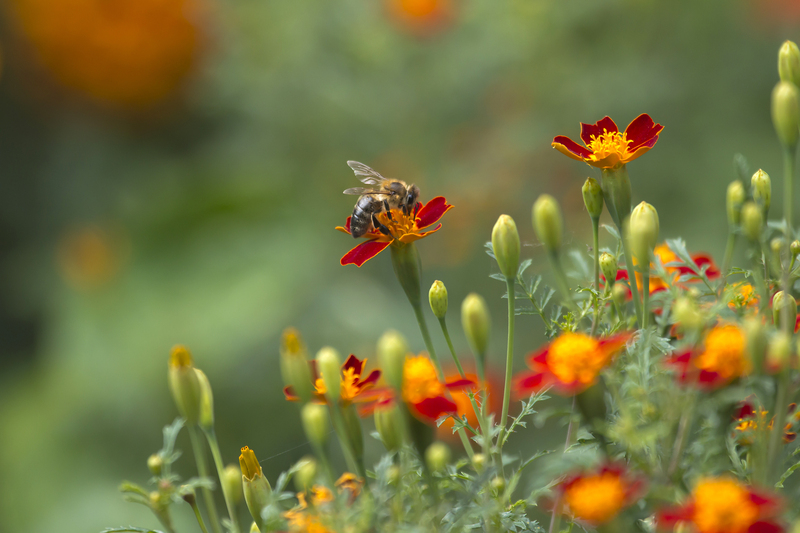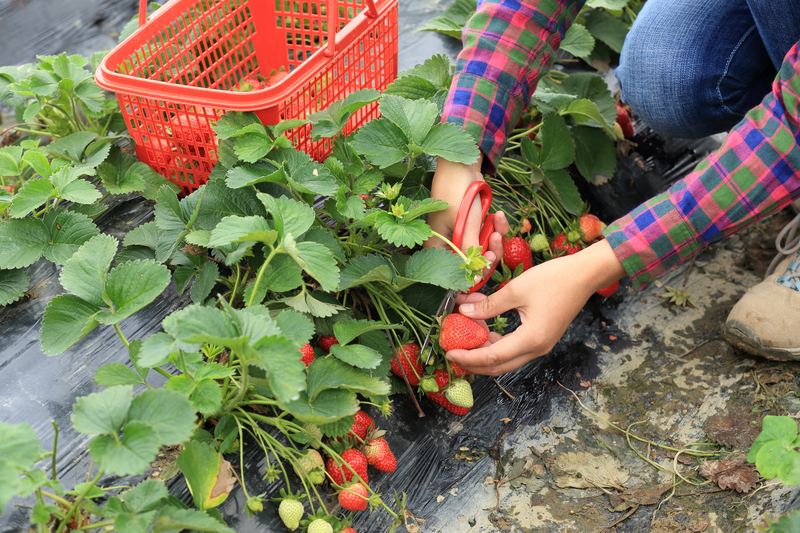Creative Ways to Utilize Unused Outdoor Areas for Gardening
Posted on 29/08/2024
With the rise of urbanization and limited outdoor spaces, many people are left with abandoned backyards or small balconies that they don't know what to do with. However, these areas can be transformed into beautiful and fruitful gardens with a little bit of creativity. Not only will it add some greenery to your living space, but it can also provide you with fresh produce and a peaceful escape from the chaos of city life. In this article, we'll explore some unique ways to utilize those unused outdoor areas for gardening.
1. Vertical Gardening
One of the best ways to maximize space in a small area is by going vertical. This method involves growing plants vertically on a wall, fence, or trellis, rather than horizontally in traditional garden beds. It not only saves space but also adds an interesting visual element to your outdoor area. You can use hanging planters, shoe organizers, or even repurpose old wooden pallets as a vertical garden structure. This technique works well for growing herbs, salad greens, and even small fruits like strawberries.

2. Container Gardening
Another great option for utilizing small or unused outdoor spaces is container gardening. This involves planting different types of plants in containers such as pots, barrels, or baskets. You can get creative with the containers by using unconventional materials like old tires, buckets, or even old kitchen appliances. Container gardening is perfect for those who have limited mobility as it requires minimal bending and kneeling. Plus, it's easy to move around and rearrange if needed.
3. Hanging Gardens
If you have a balcony or a small deck that gets plenty of sunlight but has limited floor space, consider creating a hanging garden. You can use hanging baskets or install shelves on the walls to hold potted plants. Hanging gardens not only add beauty to your space but also help purify the air and reduce pollution levels. They work well for growing flowering plants like petunias, fuchsia, and geraniums.

4. Rooftop Gardens
If you live in an apartment building with access to the rooftop, consider starting a rooftop garden. Not only does it make use of an otherwise unused space but also insulates your home, helping reduce energy costs. Growing vegetables and herbs on your rooftop is not only a satisfying way to connect with nature but also provides you with fresh, organic produce. Make sure to consult with your building's management before starting a rooftop garden.
5. Window Boxes
For those with small windows or balconies, window boxes are a great solution for growing plants. These shallow containers can be attached to your windowsill or railing, making them perfect for growing herbs, succulents, and small flowering plants. They require minimal maintenance and can easily be moved indoors during extreme weather conditions.
Pros:
- Makes use of otherwise unused outdoor spaces.
- Adds beauty and greenery to your living space.
- Provides fresh and organic produce.
- Can have therapeutic benefits.
- Easy to maintain and customize according to your needs.
Cons:
- Limited space means limited plant options.
- Requires regular maintenance and watering.
- May face challenges like pests and extreme weather conditions.
- Sunlight exposure may vary depending on the location, affecting plant growth.
Tips:
1. Choose plants that are suitable for the amount of sunlight your outdoor area receives.
2. Use good quality soil and proper drainage for healthier plant growth.
3. Consider using rainwater or a drip irrigation system to conserve water.
4. Regularly prune and harvest plants to encourage new growth.
5. Use natural pest control methods such as companion planting or introducing beneficial insects.
Takeaways:
1. Unused outdoor areas can be transformed into beautiful gardens with some creativity and innovation.
2. Vertical gardening, container gardening, hanging gardens, window boxes, and rooftop gardens are some ways to utilize small or abandoned spaces for gardening.
3. Gardens not only add beauty to your living space but also provide you with fresh produce and therapeutic benefits.
4. Regular maintenance and proper plant selection are crucial for successful gardening in limited spaces.
Conclusion
With a little bit of planning and some out-of-the-box thinking, you can turn any unused outdoor area into a beautiful garden. Whether it's a small balcony or an abandoned rooftop, there are plenty of creative ways to make use of these spaces for gardening. Not only will it add some greenery to your living space, but it will also provide you with fresh produce and a peaceful sanctuary in the midst of city life. So, why wait? Start exploring the possibilities and create your own mini garden oasis today!
Latest Posts
Essential Tools for Passionate Gardeners
Top 9 Gardening Tips for Newbies
Top Edible Wild UK Plants and Flowers



